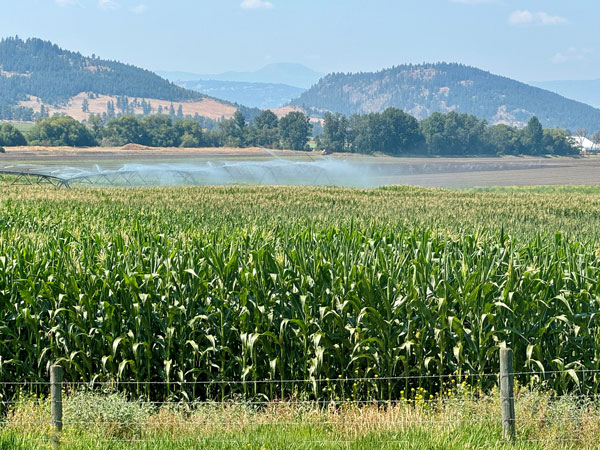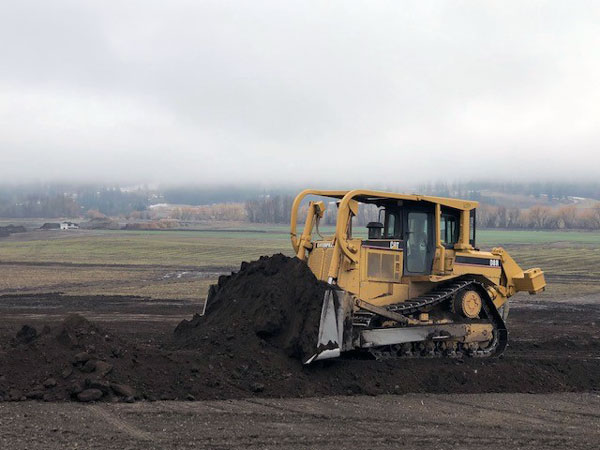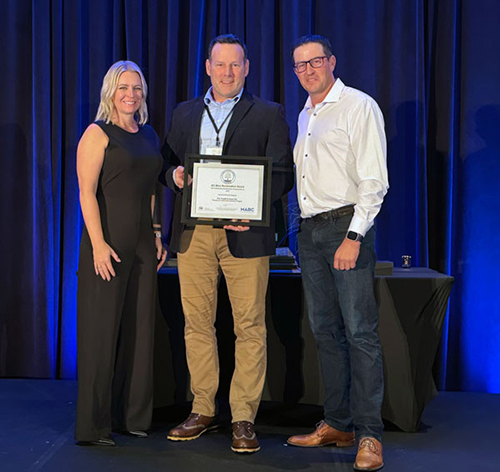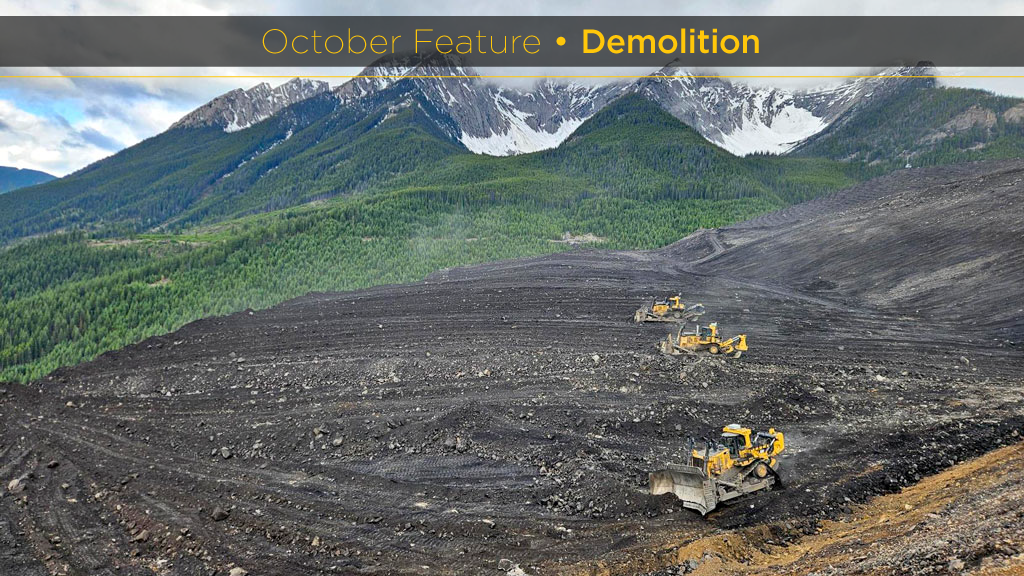By its nature, mining is a process of destruction – demolishing the ground on or under the surface in order to get at the minerals, metals or gravel the miners seek.
To control the damage to the Earth, modern government regulations have mandated that plans for remediation and reclamation be in place before a mining operation can begin.
Jay Rao, a director with the Association of Consulting Engineering Companies in BC, says miners in the province must abide by many provincial and federal reclamation regulations.
“Contamination needs to be managed and remediated to protect the environment – humans, birds, fish, mammals, etc. – that can be affected directly or indirectly as a result of mining activities,” says Rao.
Several mine reclamation projects recently received awards from the British Columbia Technical and Research Committee on Reclamation (BCTRCR) in recognition of their work.
Elk Valley Resources (EVR) received the 2024 Coal Mine Category Award for its reclamation of the West Line Creek (WLC) rock spoil in its Line Creek Operations in the Rocky Mountains in southeastern B.C.
A mining term, rock spoil consists of natural materials, including the mine rock left over from the mining process.
“EVR is honoured to receive this award, which acknowledges our teams’ innovative, landscape-scale approach to reclamation,” says Jacqueline Dube, reclamation co-ordinator at Line Creek Operations and project manager of the WLC Spoil Reclamation Project.
Dube says the three-year (2022-2025) phased reclamation project uses an innovative geomorphic land design inspired by the natural terrain to create grassland and forest ecosystems.
Design features include varying slopes and surfaces, a meandering gully modelled after nature’s patterns and a steep ground ridge feature.
“A geomorphic design is an innovative approach to land reclamation,” says Dube. “We have previously seen geomorphic designs for other reclamation projects that were challenging or impossible to construct, and we were able to create a functional design to make the project a reality.”
Gravel contractor R.E. Postill and Sons won the Sand and Gravel Category Award for its Rosebush Land Improvement Project at independently-owned Coldstream Ranch near Vernon in the North Okanagan.

Following gravel extraction from a 68-hectare site on the ranch, the area was reclaimed with clean fill and topsoil and planted with a grass-legume mixture to provide forage for the ranch’s beef cattle operation.
Not only has reclamation improved the site’s agricultural capability, a reduced slope created 9.5 hectares of new farmland for cultivation.

“We are very honoured and humbled to have received this award,” says Linsey Johannson, who, with her husband Jamie, owns Postill. “This was a long-term project that required great foresight and accurate planning to complete. We are proud of our work and it was exciting to finally see it come together.
“We are a small fourth-generation family-owned business, and we have many employees who have worked for us for the duration of the project.”
During the 30-year life of the Rosebush land improvement project, Postill has extracted, processed and sold 4.07 million tonnes of gravel and replaced it with clean fill from various job sites around Vernon.
“By recontouring the topography and completing the project, the Coldstream Ranch has gained 23 acres of usable land which was previously unfarmable,” says Johannson.
Glencore Canada won the Jake McDonald Mine Reclamation Award for the reclamation of the Central South bulk sample project and exploration area in north-central B.C.
Reclamation work involved moving and recontouring more than 300,000 cubic metres of material and reclaiming 56 kilometres of exploration trails, roads and 96 drill pads.
The symposium included a tour of Aldergrove Regional Park, where Metro Vancouver worked with private sector partners to reclaim a gravel pit in one of its regional parks.
The transformation from pit to park used a local product called Nutrifor to help establish vegetation on the site.

Janelle Hunt, utility residuals management program manager at Metro, says Nutrifor is an alternative to chemical fertilizer.
“Nutrifor is the brand name of Metro’s biosolids, which are recovered from advanced wastewater treatment,” says Hunt. “They’re rich in the organic matter that plants love. Nutrifor is used across B.C. to restore land, create healthy soil and bring vegetation back to life.”
The symposium, which took place in Burnaby at the end of September was the 47th time the annual event has taken place.
BCTRCR spokesman Jonathan Buchanan says the symposium facilitates the exchange of information between reclamation experts and the provincial government.
“We discovered in the 1970s that the best way to do this is in annual symposiums,” says Buchanan. “They combine workshops, mine tours and technical presentations and they cover all aspects of reclamation.”



Recent Comments
comments for this post are closed